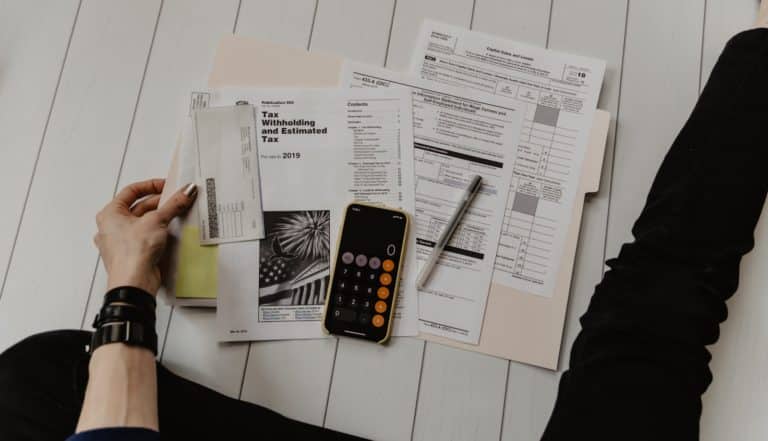Fidulex, your trust expert in Geneva
Located just a few meters from Geneva's Cornavin train station, our fiduciary company helps you handle your accounting, taxes, payroll and legal matters.
-
Certified experts in
Switzerland, -
Cloud application
secure
- Certified experts in Switzerland
- Secure cloud application

Our fiduciary services
Explore our services and discover how we support you throughout your business with tailor-made solutions and multi-disciplinary expertise, throughout Switzerland and internationally.
Accounting in Geneva
We manage all your accounts payable and receivable, and assign you a certified accountant to ensure you receive unrivalled service.
Payroll management
We offer a payroll management and work permit application service that will provide the best human resources service for your company.
Tax return in Geneva
Our tax specialists will complete your tax return and help you claim the deductions to which you are entitled.
Company domiciliation
Would you like to domicile your company? We offer you the opportunity to establish your company's headquarters in a strategic location in Geneva.
Starting a Business in Switzerland
Full support for company start-ups, from drafting the articles of association to registering your company.
All our services
Discover all the tax, accounting and administrative management services offered by Fidulex.
Why choose our trustee?
At Fidulex, we understand our customers' concerns and needs. That's why our team is made up of various experts and specialists in all the fields that can be useful in carrying out our assignments.
Save time
We take care of your company's accounting, tax and social security management. We tailor our services to meet your needs, so that you can concentrate on what really matters to you.
Cloud application
From your customer dashboard, you can check your finances 24/7. What's more, you can easily generate QR invoices for your customers, saving you both time and money.
Personal touch
When you work with us, you'll be assigned an accountant. They will be familiar with all the particularities of your business, in order to provide you with the best support.
Unlimited advice
We are available to answer any questions you may have about your business. You can contact us by e-mail, phone or whatsapp.
Meeting deadlines
We use the most powerful and up-to-date softwares on the market to automate our processes and help you comply with regulations.
Transparent pricing
At Fidulex, we understand the daily stress of running a business. Our subscription-based accounting can help relieve some of this stress.
We help start-ups, freelancers, small and medium-sized businesses to manage all administrative aspects by supporting them in their accounting, tax and payroll management.

Our added value
We offer accounting services, tax advice, audits, business start-ups, payroll management and administrative support in Geneva. Our customers appreciate our transparent pricing, friendly service and state-of-the-art accounting tools.
Tailor-made support
We work with business leaders throughout Switzerland in a wide range of sectors, including healthcare, real estate and financial services.
- Multilingual team
- Certified specialists and experts in Switzerland
- Support in the event of disputes
- Digital support
Local service from certified experts
The professionals working at Fidulex have a wide range of qualifications, including Swiss chartered accountant, controlling expert, tax expert and finance and accounting specialist, so we can provide you with the best possible support.
What's more, none of our work is subcontracted, and all our employees work from our offices in Geneva, to guarantee you impeccable service and local processing of your data.
More about us
Our experts provide regular monitoring to ensure that all your business requirements are met. We use state-of-the-art management tools to meet your needs flexibly and continuously.

Frequently asked questions
What languages do Fidulex experts speak?
Fidulex's experts are qualified to serve the international clientele of the Canton of Geneva, and are fluent in English, French, Italian, Portuguese and Spanish.
Who can benefit from Fidulex services?
Private individuals can benefit greatly from our services for individuals particularly in administrative management.
Our professional services, on the other hand, are designed for freelancers, start-ups, small and medium-sized businesses in all sectors.
What is the commitment period for your services?
Fiduciary companies in Geneva generally offer contracts that are not very flexible. However, Fidulex can offer you contracts tailored to your needs.
The length of the commitment will therefore depend on the service (simple accounting, catch-up, etc.) and your needs. Please let us know what you are looking for, so that we can offer you the best solution.
What is a fiduciary in Switzerland?
A fiduciary is a company offering a wide range of business management services: accounting, payroll management, taxation, auditing, corporate finance, and much more.
Why use a fiduciary?
When you call on a fiduciary, you benefit from multi-disciplinary experience in the fields of taxation, accounting and business management in general. Whether you are a private individual or a professional, a fiduciary will provide you with the best possible support for all your needs in these areas.
Our customers talk about us
Find out what our customers think
Trustindex vérifie que la source originale de l'avis est Google. J’ ai reçu des conseils précis et pertinents pour un coût très abordable. L accueil est chaleureux et la prise en charge rapide. Je conseille vivement.Trustindex vérifie que la source originale de l'avis est Google. Un fiscalité aussi professionnel que serviable. Il a été d’une très grande rapidité dans la gestion de mon dossier (moins de 24h). Je ne peux donc que le recommander. Merci à vous M. Flores.Trustindex vérifie que la source originale de l'avis est Google. Great and professional service, helped out with a fairly complicated situation that required communicating with the tax authorities and ended up in a positive resolution. Highly recommended!Trustindex vérifie que la source originale de l'avis est Google. José took the time to understand all the details of my query, and then was able to give really clear and helpful advice.Trustindex vérifie que la source originale de l'avis est Google. Mr Flores est très réactif et a su traiter notre dossier complexe avec beaucoup de professionnalisme. Nous referons appel à ses services et nous le recommandons.Trustindex vérifie que la source originale de l'avis est Google. Excellente expérience avec la fiduciaire Fidulex à Genève. Équipe professionnelle, réactive et compétente. Je recommande à 100%.Trustindex vérifie que la source originale de l'avis est Google. Je suis très satisfaite par les services exceptionnels de M. Flores et l'équipe Fidulex. J'ai beaucoup apprécié le temps qu'il a pris pour me donner des conseils personnalisés. Je me suis tout de suite sentie en confiance avec Fidulex et je les recommande vivement pour leur professionnalisme et leur expertise.Trustindex vérifie que la source originale de l'avis est Google. Les services de Fidulex sont excellents et la flexibilité de leurs offres est un grand avantage. Rapides, clairs et efficaces!Trustindex vérifie que la source originale de l'avis est Google. Je souhaiterais souligner un service efficace, compétent et très aimable!





